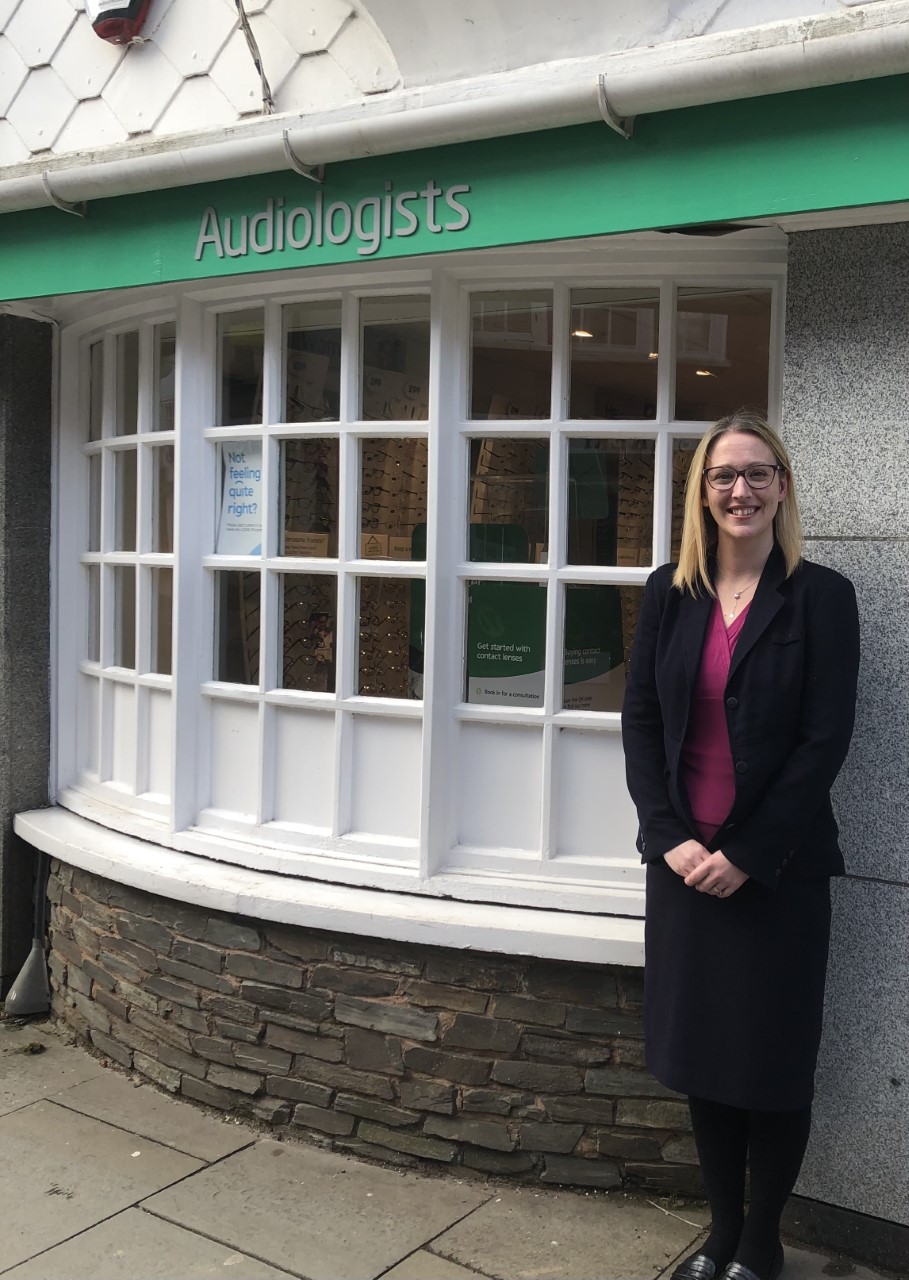South Devon people are being warned about the dangers of taking their hearing for granted.
As World Hearing Day (March 3) approaches, research shows that many people don’t look after their hearing health, so the British Association for Music Therapy and Specsavers have teamed up to encourage people to take steps to protect their hearing.
A third of people in the South West say sounds can help to trigger happy memories , according to the Specsavers survey, with 77% of people saying that music can uplift their mood unexpectedly .
The research also shows just how important sound is for our memory and emotional wellbeing. In the South West, 61% of people say that their favourite song can take them back to key moments, and 83% say that they believe music is one of the most powerful ways to evoke emotion .
Kim Waryck, a director of Totnes Specsavers Hearcare, adds: ‘Sixty-five percent of people across the region said losing their hearing would impact their mental health , so combining that with the relationship between sound and memory and the link between hearing loss and dementia , it is really important that we do all we can to protect and preserve our hearing.

‘We can do this through having regular hearing checks, making sure we don’t listen to music or the TV too loudly, and ensuring we wear hearing protection when we’re going to be surrounded by loud noises.’
The research also shows that 42% of people across the region say sounds trigger happy memories for them a couple of times a week, and 75% say that as they grow older they treasure happy memories more, which is why it is so important we do all we can to look after our hearing .
Clare Maddocks, from the British Association for Music Therapy, says: ‘As a music therapist, I am trained in how to use sounds and music in a variety of ways to help support clients to communicate, express themselves emotionally as well as use music to help build social, physical or relational skills. Music is a powerful therapy tool and it has a particularly strong impact on our brains. When we listen to music, we use multiple regions of the brain, which is unique compared to other day-to-day tasks. This includes the parts of the brain associated with emotional reaction, communication and memory.
‘If we listen to the same piece of music over and over, our brain builds up a cognitive schema in which our emotional response to the song and an autobiographical memory are assigned. It’s that experience of hearing a song on the radio that you haven’t heard in years and it instantly reminds you of a time long ago – perhaps an old teenage memory, or a specific important event such as a wedding or funeral. This phenomenon reaches us even when words cannot, such as when we struggle to express ourselves verbally due to an emotional reaction or perhaps even a physical condition such as dementia.
‘Protecting your hearing is important not just for day-to-day communication, but also to help preserve the ability to connect with others and our memories in music.’
Specsavers offers custom ear protection which provide an individual and unique fit with guaranteed levels of protection. Its audiologists can take a mould of your ear to get a good acoustic seal and ensure a perfect fit every time.
For more information, to book a hearing test or find out more about the range of hearing protection on offer visit www.specsavers.co.uk/hearing or to find out more about the British Association for Music Therapy visit www.BAMT.org

You can join us on our social media pages, follow us on Facebook or Twitter and keep up to date with whats going on in South Devon.
Got a news story, blog or press release that you’d like to share or want to advertise with us? Contact us




























